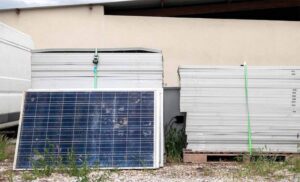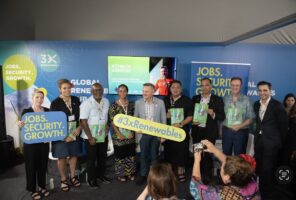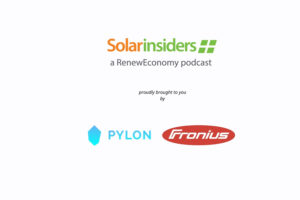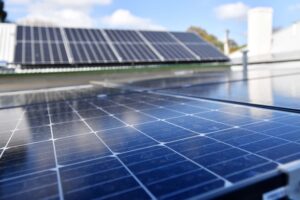It has taken just 7 days, but already the reputation of Australia as a constructive force in international climate policy has been completely trashed – both in terms of its domestic actions and in the wrecking ball tactics it has sent to Warsaw.
Australia is now seen as an “anti-climate” nation that is actively working against any consensus at these talks, as its domestic policies are translated onto the international stage.
Australia has – many times over the 20-plus years of UN-led climate talks – been seen as an outlier, courtesy of its huge reliance on coal power and exports. But its actions in Warsaw have come as a shock to negotiators who are dealing with familiar faces who had been constructive, if not progressive, at previous conferences.
As mentioned in our report yesterday, the most common refrain being heard by Australian representatives is: What is going on down there? Even a Bush-era US negotiator found Australia’s negotiating position to be extreme. Its opposition to a climate finance position paper prepared by other “climate fiscal conservatives” such as US, New Zealand, Japan, and Canada, has dumbfounded participants.
Actually, what is going on is that Australia is simply taking its domestic sloganeering to the international stage, regardless of diplomatic sensitivities. As Tony Abbott told The Australian today: “We are determined to say what we mean and do what we say, so we will never say one thing at an international conference and another thing at home.” He may be consistent, but he’s failing Diplomacy 101.
His comments came as Australia made the unprecedented step of dissenting on the final communique at the Commonwealth Heads of Government Meeting in Sri Lanka, joining with Canada in refusing support for the UN-sponsored green climate fund, which he dubbed the “green capital fund”. He also dubbed the Clean Energy Finance Corp, which he also wants to dismantle, the “Bob Brown Bank.” (Brown is the former leader of the Australian Greens).
Back in Warsaw, observers are simply aghast. The refusal to back the green climate fund (which has a similar function to the CEFC or even Abbott’s proposed emission reduction fund, apart from the spooky words “green”, “climate” and “clean energy”) is seen as a threat to these talks, because they are a crucial piece of common ground between developed and developing countries.
“There is no intention for Australia to be in any way constructive or really participate in these talks,” said Wendel Trio, European director of the Climate Action Network.
Indeed, he said, Australia seemed to be working deliberately against any agreement. “I think it is evident at these talks,” he said. “I wonder if Australia would be really interested in joining a legal treaty in 2015.” A big test in coming days will be how Australia and other nations respond to a draft text to move the negotiations towards a Paris agreement.
The draft text includes commitments for the green climate fund, and urges countries to “significantly lift” ambition before 2020 and to move to the top of their target ranges. The Climate Change Authority came to the same conclusion, dismissed by the Abbott government, and it is not yet clear that Australia will indicate its support for that range when it makes its speech to the conference on Thursday.
Trio was speaking after an analysts group, known as GermanWatch, released its annual climate change performance index, which shows that Australia has fallen so far down the rankings that it now sits, along with Canada, as the worst performing industrial country in the world. Both countries get a resounding fail, and are only saved from last spot by Iran, Kazakhstan, and Saudi Arabia.
Australia’s position was already poor because of its high emissions levels and limp-wristed renewables policies, but the decision by the Abbott government to repeal the carbon tax and dismantle all climate and clean energy institutions and initiatives sent it down six places to No 57 out of 61 nations.
What is extraordinary, though, is that this is taking place as the researchers declared a “glimmer of hope” that global emissions could actually peak before 2020 – thanks mainly to the slowing down of emissions in developed countries, and decisive action taken by China to limit coal consumption.
The first three places in the index are actually declared vacant, because no country is acting strongly enough to keep global warming below 2°C. Denmark is the top-ranked country, followed by the UK (for its efforts in reducing emissions), Portugal and Sweden. Germany, because of its failure to support more decisive action on emissions trading and energy efficiency fell to 19th spot. China rose to 46th, just behind the US in 43rd.
The decision by Australia not to send a minister has frustrated negotiators, and the EU is bitterly angry about the decision to repeal the carbon price. Even the Chinese are nonplussed, having studied the Australian carbon price with great intensity before launching into their own.
RenewEconomy asked Todd Stern, the US delegation head, about the Australian government’s actions, and whether Abbott was showing the sort of leadership that would help deliver his stated goal (of maybe it’s just Greg Hunt’s) of using Australia’s chairmanship of the G20 to bring the US and China together to forge a climate deal. Stern smiled and said he had not met the new government so wasn’t going to make any judgements.
 Australia, of course, is a coal nation – along with COP19 host nation Poland. (It should be noted that coal exports were not included in Australia’s ranking. Had they been, it may well fallen to last place).
Australia, of course, is a coal nation – along with COP19 host nation Poland. (It should be noted that coal exports were not included in Australia’s ranking. Had they been, it may well fallen to last place).
And coal is seeking to extend its influence by hosting a major summit at the Polish Ministry of Economy, where environmental groups held a demonstration this morning. (They unfurled a banner which asked: Who runs Poland? Coal industry or the people? Silly question, really).
The line being trotted out by the coal industry here is that ultra-efficient coal plants are a “low-emissions” solution to climate change. A group of 27 scientists joined together to dismiss this as absolute nonsense, arguing that achieving climate change targets was not possible with unabated coal.
Dr Bert Metz, a former co-chair of the IPCC’s working group on climate change mitigation, said alternatives to fossil fuels are already available and afford. (see the graph below).
This was a point underlined by UNFCCC executive director Christiana Figueres, who told the coal industry that it must change rapidly and dramatically and needed to “look past next quarter’s bottom line and see the next generation’s bottom line.”
“The coal industry faces a business continuation risk that you cannot afford to ignore. Like any other industry, you have a fiduciary responsibility to your workforce and shareholders,” she told the World Coal Summit. “And by now it is abundantly clear that further capital expenditures on coal can only go ahead if they are compatible with the 2 degree Celsius limit.”
To do that, she suggested that the industry should close all existing subcritical plants, implement carbon capture and storage on all new plants, even the most efficient, and leave most existing reserves in the ground. All suggestions that the coal industry shows now the least sign of wanting to adopt.
Figueres made it clear later that the coal industry was facing a huge challenge and it needed a “major rethink” and a major shift in the deployment of their capital. If technologies such as CCS could not be deployed to reduce emissions and stay within the 2°C limit, then coal reserves would have to be left in the ground.
But she also said it made “an extraordinary amount of sense” to invest in renewables, particularly solar, which was becoming competitive in a growing number of countries. “There is no doubt that these are the energies of the future,” she said.
Below is a graph showing lifetime emissions of various energy technologies.








